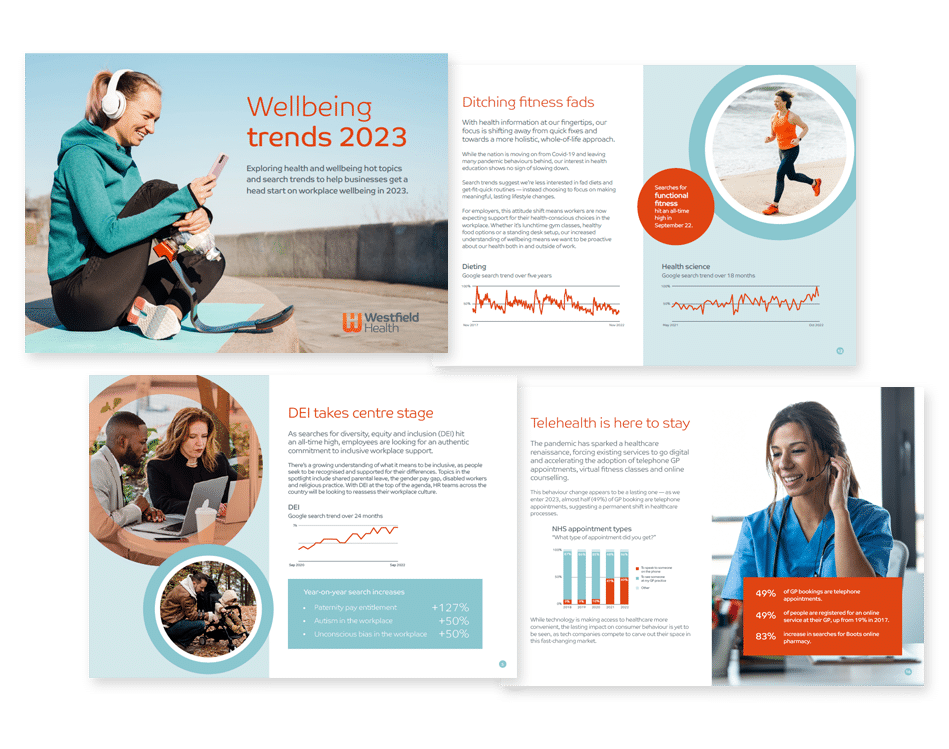Our 2023 Wellbeing Trends report explores the most-searched health and wellbeing topics and what we should expect from these trends throughout the year.
Financial wellbeing was an emerging topic in last year’s trends report, but the cost-of-living crisis has escalated throughout 2022 to become a critical issue for workers and businesses alike.
For our 2023 report we investigated the trend again to discover how the crisis has developed for households across the UK.
The report revealed some worrying statistics:
- Google searches for ‘cost of living’ increased by 4,555% in 2022.
- 20% of people say they’re dealing with the cost-of-living crisis by looking for a job that pays more — the highest of any option in the ONS survey.
- Searches for ‘interest rates’ increased by over 1,000% over the past year and searches for ‘recession’ have increased by over 500%.
- Retailer John Lewis saw a 219% rise in hot water bottle sales throughout 2022 as people strive to reduce their energy bills.
The mental health impact of the cost-of-living crisis
The cost-of-living crisis is now a key area of concern for the UK public, having a significant impact on both mental and physical health. Last year’s wellbeing trends report included ONS data showing a cost of living increase for 62% of UK adults — this year that figure has risen to 93%.
Research from the BACP found that two thirds (66%) of therapists say cost of living concerns are causing a decline in people’s mental health, and 61% of therapists say their clients are anxious about whether they can afford to pay their household bills.

Behavioural trends also demonstrate the real-life impact of the cost-of-living crisis. Google searches for ‘food bank’ have more than doubled since last year, reaching their highest level since the first lockdown, and sales of hot water bottles and heated blankets have skyrocketed as people look for ways to save money by ‘heating the human not the home’.
Businesses risk losing top talent
Workers are increasingly looking for financial support from their employer, but limited budget for salary reviews is driving talented workers to look for better pay elsewhere.
While some businesses are offering support in the form of cashback schemes, financial advice or one-off payments, workers are likely to lose patience as they face the reality of higher mortgage rates and increased energy bills.

If salaries don’t keep up with inflation, the risk for employers is that their top talent will leave in search of better compensation elsewhere.
At a time when businesses are tightening the purse strings, the cost of recruitment — around £3,000 per hire — could pose a serious threat to the bottom line.
Learn more about upcoming wellbeing trends
For more about the workplace wellbeing trends we’re predicting for 2023, download our yearly Wellbeing Trends report. It explores emerging workplace health and wellbeing topics to give you a head start on employee wellbeing.
The report uses data from sources including the Office for National Statistics, the NHS, Google search trends and our own wellbeing research to help you plan and prioritise your wellbeing support.
